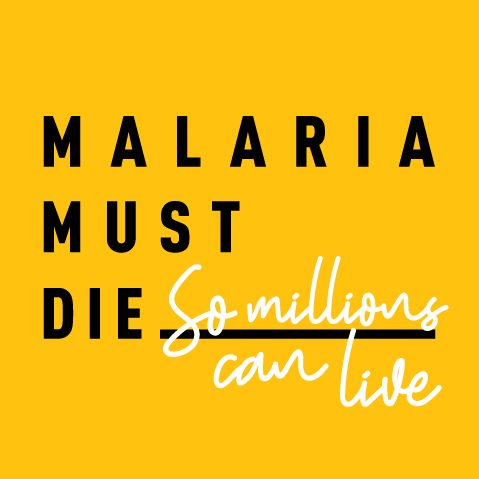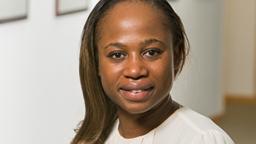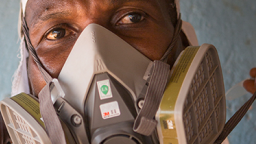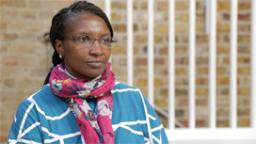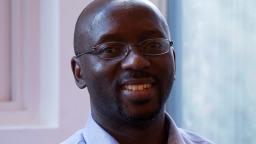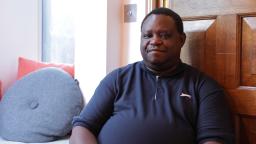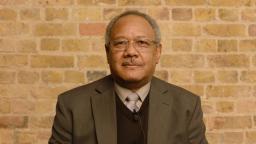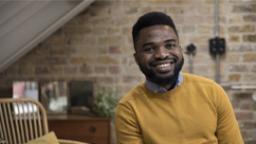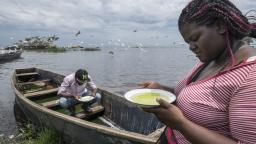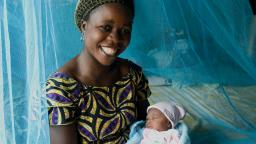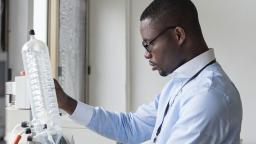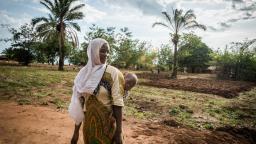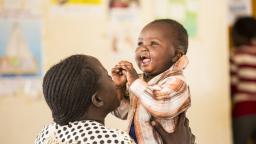The majority of people that die from malaria are children under 5. That is just not okay. That’s our next generation. That’s our future.
“I just fell so ill … within 24 hours it turned out I was critically ill, and I got rushed to intensive care and told by a doctor that I was actually dying.” British broadcaster Charlie Webster describes the trauma of getting malaria while on the challenge of a lifetime, cycling 3,000 miles from London, UK to Rio de Janeiro, Brazil, for charity and to report on the Olympic Games in summer 2016.
“I had multiple organ failure … I was given 24 hours to live.” Charlie soon fell into a coma and was put on a life support machine. Doctors warned Charlie’s family that there was a good chance that even if she woke up, she would suffer the potentially devastating effects of brain damage – they were told to fly out to Rio to say goodbye.
Four years on from this harrowing experience of nearly losing her life to the disease, it is still fresh in Charlie’s mind. Charlie says she was lucky to be able to access high-quality healthcare and treatment that saved her life. Incredibly, she was able to recover, although the journey wasn’t easy. “I had to re-learn how to walk again … I kind of lost who I was, and I was in a lot of pain.”
I had to re-learn how to walk again … I kind of lost who I was, and I was in a lot of pain.
Having survived malaria and witnessed the damage and heartbreak it causes to so many people and families worldwide, Charlie became a Special Ambassador for the malaria fight with Malaria No More UK. In 2017 and 2018 Charlie delivered keynote speeches at US Senate and UN HQ in Washington to galvanize support from senior policymakers urging them to sustain their malaria commitments. In 2018, Charlie visited Uganda to experience the impact of malaria on local communities raising awareness for the Malaria Must Die campaign where she met a family whose daughter had also had malaria at the same time as Charlie. “She was 9-years-old and she wanted to be a doctor,” Charlie remembers. “She was called Asha, and sadly she passed away … because she didn’t have the right resources. She didn’t have access to a health system like I did.”
“The majority of people that die from malaria are children under 5. That is just not okay. That’s our next generation. That’s our future.”
Today, Charlie is proud to share her story and use her voice to support the Malaria Must Die campaign.
This film is so important. It’s really tough right now … and I think it is really important to show that we can do this … we can work together to end something that’s killed so many people.
Charlie also shared her story with David Beckham when they had an opportunity to speak at the filming of the Malaria Must Die campaign in London.
Major progress has been made towards ending malaria in recent decades. “It is amazing what globally has been done and also what Britain’s done. It's innovative, it's creative … But what we need is for that to continue, we can’t take the foot off the pedal.”
Charlie says the recent global commitment to fighting Covid-19 shows what we can achieve when we work together.
